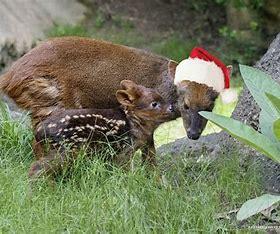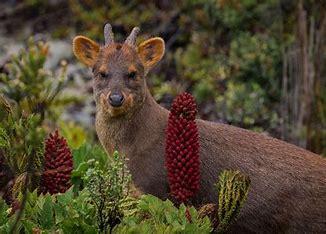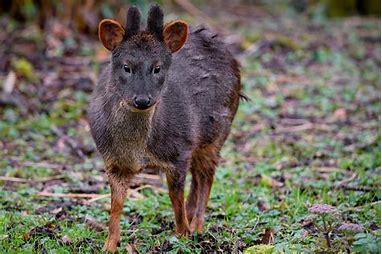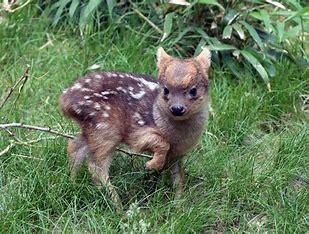Results: Pudu to You!
Published on 10/02/2024
The pudus (Mapudungun püdü or püdu, Spanish: pudú, Spanish pronunciation: [puˈðu]) are two species of South American deer from the genus Pudu, and are the world's smallest deer. The chevrotains (mouse-deer; Tragulidae) are smaller, but they are not true deer. The name is a loanword from Mapudungun, the language of the indigenous Mapuche people of central Chile and south-western Argentina. Wikipedia is the main source for this survey.

QUESTIONS
GO to COMMENTS
Comments
1.
1.
The two species of pudus are the northern pudu (Pudu mephistophiles) from Venezuela, Colombia, Ecuador, and Peru, and the southern pudu from southern Chile and south-western Argentina. The southern pudu is classified as near threatened, while the northern pudu is classified as Data Deficient in the International Union for Conservation of Nature (IUCN) Red List. Before this survey, did you know about pudus?

Yes
11%
235 votes
No
89%
1965 votes
2.
2.
The southern pudu is slightly larger than the northern pudu. It has a stocky frame supported by short and slender legs. It is 32 to 44 cm (13 to 17 in) high at the shoulder and up to 85 cm (33 in) in length. Pudus normally weigh up to 12 kg (26 lb), but the highest recorded weight of a pudu is 13.4 kg (30 lb). Did you ever imagine a deer could be this small?

Yes
15%
338 votes
No
67%
1475 votes
Undecided
18%
387 votes
3.
3.
The pudú inhabits temperate rainforests in South America, where the dense underbrush and bamboo thickets offer protection from predators. The northern pudú is found in the northern Andes of Colombia, Venezuela, Ecuador, and Peru, from 2,000 to 4,000 m (6,600 to 13,100 ft) above sea level. The southern species is found in the slope of the southern Andes from sea level to 2,000 m (6,600 ft). Have you ever seen a pudu in the wild?

Yes
7%
156 votes
No
93%
2044 votes
4.
4.
The pudú is a solitary animal whose behavior in the wild is largely unknown because of its secretive nature. Pudús are crepuscular, most active in the morning, late afternoon, and evening. Their home range generally extends about 16 to 25 ha (40 to 62 acres), much of which consists of crisscrossing pudú-trodden paths. Each pudú has its own home range, or territory. Did you find this pudu information interesting?

Yes
65%
1421 votes
No
20%
431 votes
Undecided
16%
348 votes
COMMENTS


